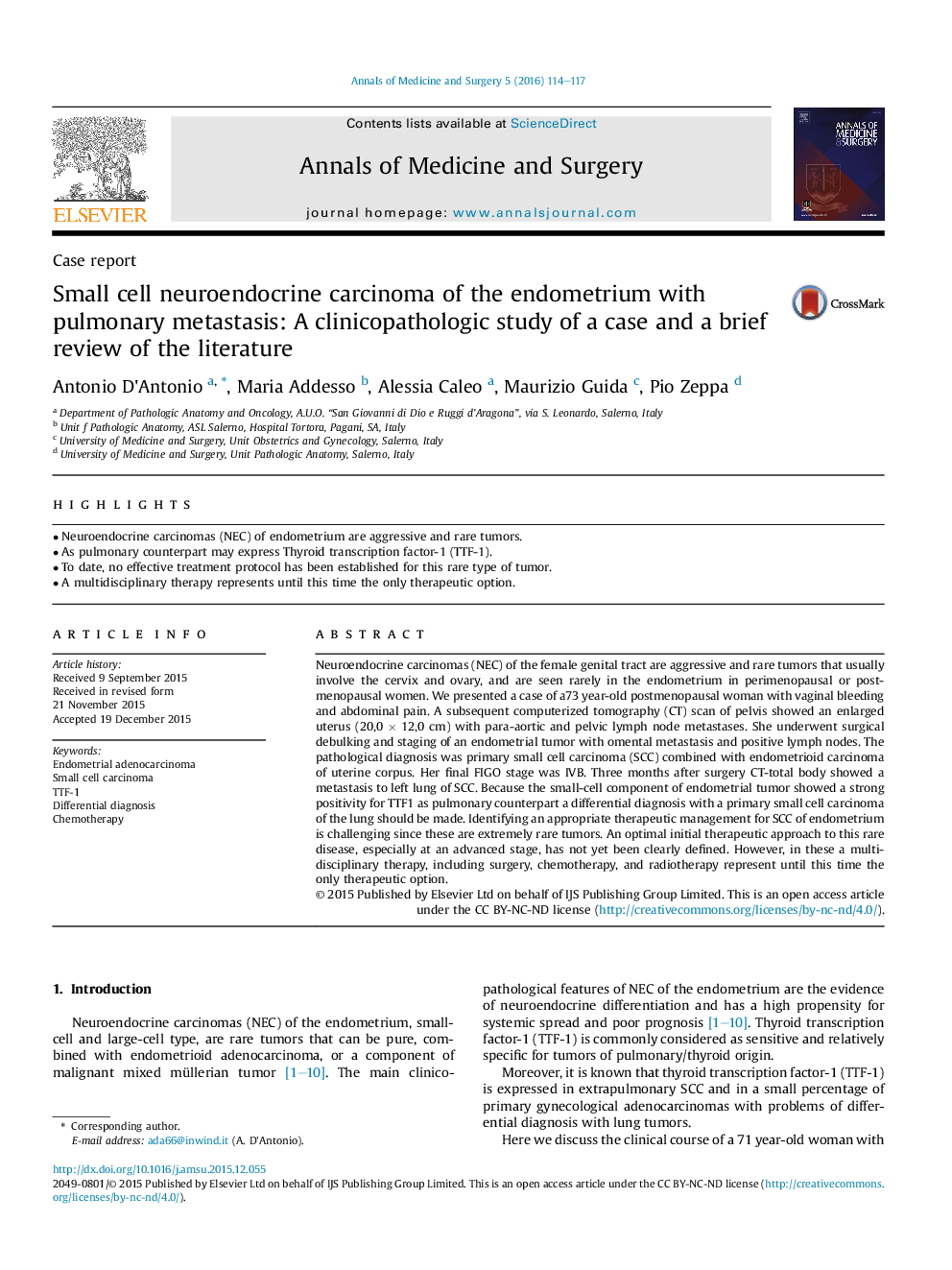| Article ID | Journal | Published Year | Pages | File Type |
|---|---|---|---|---|
| 4195312 | Annals of Medicine and Surgery | 2016 | 4 Pages |
•Neuroendocrine carcinomas (NEC) of endometrium are aggressive and rare tumors.•As pulmonary counterpart may express Thyroid transcription factor-1 (TTF-1).•To date, no effective treatment protocol has been established for this rare type of tumor.•A multidisciplinary therapy represents until this time the only therapeutic option.
Neuroendocrine carcinomas (NEC) of the female genital tract are aggressive and rare tumors that usually involve the cervix and ovary, and are seen rarely in the endometrium in perimenopausal or postmenopausal women. We presented a case of a73 year-old postmenopausal woman with vaginal bleeding and abdominal pain. A subsequent computerized tomography (CT) scan of pelvis showed an enlarged uterus (20,0 × 12,0 cm) with para-aortic and pelvic lymph node metastases. She underwent surgical debulking and staging of an endometrial tumor with omental metastasis and positive lymph nodes. The pathological diagnosis was primary small cell carcinoma (SCC) combined with endometrioid carcinoma of uterine corpus. Her final FIGO stage was IVB. Three months after surgery CT-total body showed a metastasis to left lung of SCC. Because the small-cell component of endometrial tumor showed a strong positivity for TTF1 as pulmonary counterpart a differential diagnosis with a primary small cell carcinoma of the lung should be made. Identifying an appropriate therapeutic management for SCC of endometrium is challenging since these are extremely rare tumors. An optimal initial therapeutic approach to this rare disease, especially at an advanced stage, has not yet been clearly defined. However, in these a multidisciplinary therapy, including surgery, chemotherapy, and radiotherapy represent until this time the only therapeutic option.
